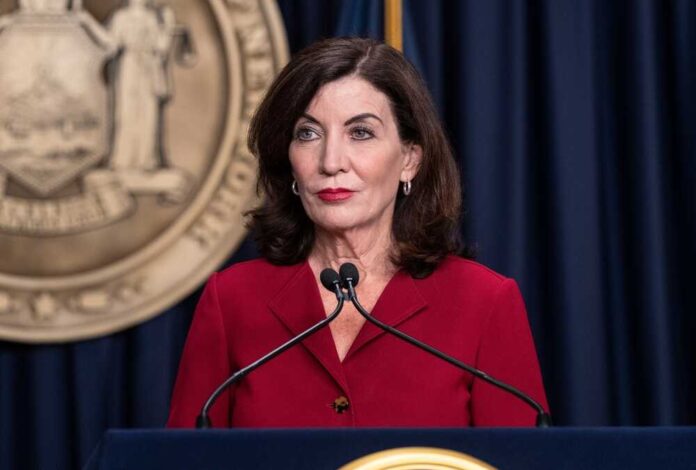
The recent nomination of liberal Judge Rowan Wilson by Gov. Kathy Hochul (D) to lead New York State’s highest court has sparked controversy following his decision last month to overturn a violent felony conviction due to delays in obtaining DNA evidence. The victim and her advocates are left stunned and questioning why Wilson is even being considered for such an important post.
In his majority opinion, Associate Judge Wilson vacated the conviction of Andrew Regan, who was sentenced to 12 years in prison for the crime. Wilson conceded that the ruling would generate a “genuine risk that a guilty person will not be punished or, as in this case, not finish out his full sentence.” The now-37-year-old woman, who remains anonymous due to safety concerns, expressed her devastation and challenged Wilson’s decision, wondering if he would have made the same call if it were his daughter who was the victim.
Yet again, Kathy Hochul shows how fundamentally unserious she is about securing our streets and fighting for women.
Judge Wilson just vacated the conviction of a rapist. Hochul now wants to make Judge Wilson the highest ranking judge in New York.https://t.co/NyOPmrohMP
— Lee Zeldin (@leezeldin) April 16, 2023
Despite Regan’s denial of the crime, DNA evidence eventually linked him to the offense, leading to his conviction in 2015. However, Wilson’s recent decision to vacate the conviction has resulted in Regan’s release four years early. The reasoning behind the ruling was cited as “inexplicable delays” that violated Regan’s right to a speedy trial.
Critics of the nomination argue that the move was intended to appease left-wing Democrats who blocked Hochul’s previous choice, centrist appellate Judge Hector LaSalle. The victim asserted that Governor Hochul is not making the right choice by nominating Wilson, given the changes he aims to make for violent felony assault victims.
Wilson, a Harvard-educated and registered Democrat, was nominated as an associate judge on the Court of Appeals by former Gov. Andrew Cuomo (D) in 2017. Victims’ advocates now worry that the case sets a dangerous precedent for convicted offenders to appeal their convictions based on delayed indictments or prolonged suspicion.
With State Senate Democrats scheduled to hold a confirmation hearing for Wilson’s nomination, the situation raises concerns about the future direction of New York’s highest court. The appointment of a liberal judge such as Wilson could further shift the balance of the seven-member court, previously dominated by a conservative bloc under former Chief Judge Janet DiFiore.
As the court’s leadership hangs in the balance, Wilson’s confirmation hearing and potential appointment to the chief judge position may signal a defining moment for Hochul’s term. The outcome will undoubtedly leave lasting effects on the court system, the lives of victims, and the precedent set for future convictions.




























